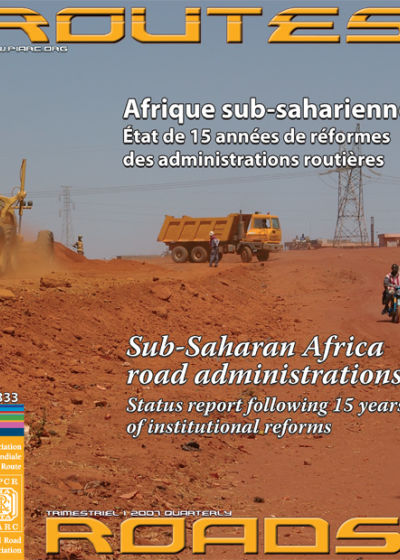The situation in Senegal
Status report following 15 years of institutional reforms within Sub-Saharan road administrations
Beginning in the 1970's, most African countries were experiencing economic and financial hardship faced with extremely tight cash flow situations. These difficulties led to a slowing of capital investment flows into the transportation sector and a reduction in annual budgets allocated to the road network. The magnitude of these difficulties incited reflection on the types of structural adjustments to be implemented within road administrations of Africa's sub-Saharan countries as of the 1990's, with the assistance of development partners.
The Association of African Road Managers and Partners (AGEPAR) has felt it useful to conduct a status check on the institutional reforms introduced over the past fifteen years within this region's road transport sector. This topic was included on the agenda of the technical seminar held February 23-24, 2006 in Bamako (Mali).
This issue of Routes/Roads will present the papers delivered at the seminar by seven countries: Benin, Burkina-Faso, Congo, Niger, Senegal, Chad and Togo (Editor's note: An additional paper on the situation in Tanzania is being included in the current issue, while an article on Mali was previously published in Issue 331). This introduction to the series of articles will set forth a succinct summary of aspects common across the various countries (road maintenance, system organization, equipment, financing of works) and relay conclusions from the seminar, as expressed in the form of a declaration adopted by the panel of participants.
-
Information sheet
- Date: 2007
- Author(s): GUISSE Bassirou
- Domain(s): Road Policies / Financing of Road System / Road Assets Management
- PIARC Ref.: RR333-062
- Number of pages: 8
-
This article has been published in the Routes/Roads magazine
N° 333
1er trimestre 2007 / Janvier
Afrique sub-saharienne - État de 15 années de réformes des administrations routières
